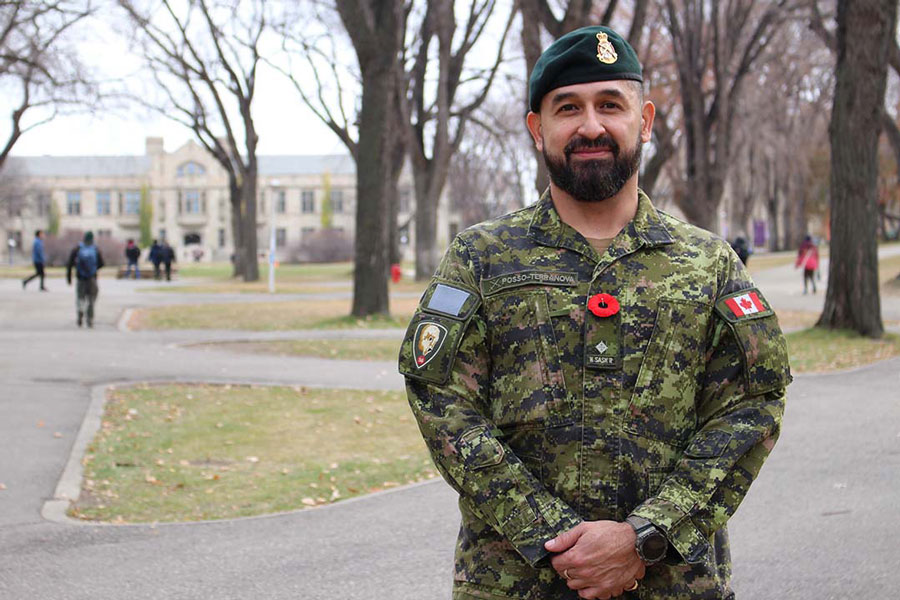
From Colombia to Canada: USask instructor finds solace in academia and military
When Dr. Andres Posso-Terranova (PhD’17) was 17 years old, he joined the Colombian Armed Forces. During his military service, a traumatic injury would influence the trajectory of his life in his home country, eventually leading him to the University of Saskatchewan (USask).
By Victoria Dinh“Back in the ‘90s, the Colombian military was a high-risk job,” said Posso-Terranova. He had just completed secondary school in the city of Palmira and was amid his mandatory military service in Bogota when the injury happened.
“Come back home and go to school. It is too dangerous,” he recalled his father pleading. “I have some savings. I can pay for the first term at the university but after that, you need to find a job. This is the only money that I have. Please come back home.”
Although Posso-Terranova enjoyed his time serving his country in uniform, he agreed with his father that a shift into education was the right move for his future and a way for him to break the cycle of poverty he found his family trapped in.
“My great grandpa, my grandpa – all of them – they were poor people with a poor education, poor health care and poor nutrition. These factors take you to a poor job and you keep being poor; you are trapped in a cycle,” he explained.
So, when his father offered to use what little money he had saved to pay for his first term of university, it meant a lot to Posso-Terranova.
“I was the first person in my family to go to school, and when I did, I never stopped,” he said.
Becoming Canadian
After leaving the Colombian military, Posso-Terranova prioritized his studies while working full time to pay for his classes. He eventually completed an undergraduate degree at University del Valle, a master’s degree at Universidad Nacional de Colombia, and then in 2011, he was accepted into USask to complete a Doctor of Philosophy (PhD). After earning his doctorate in 2014, he received funding for research in evolutionary biology and eventually completed a subsequent post-doctoral fellowship at USask’s Global Institute for Food Security (GIFS).
It wasn’t until 2022 that Posso-Terranova found himself accomplishing another major goal he had set out over a decade to achieve: to become a Canadian citizen. But when he received the official certificate, he felt that there was something missing.
“I always wanted to serve my community,” he said. “Once I got that certificate, the next day, I went to the recruitment office, and I joined the forces as an infantry officer for the North Saskatchewan Regiment.”
At the age of 43, his military life began again.
Academic and military self
Two years have passed since Posso-Terranova joined the reserves. He is currently employed full time at USask as an instructor-laboratory co-ordinator in the Department of Biology, while also serving the Canadian military part time.
“I am happy to live between the military service and my role as a genetics instructor at USask,” he said, adding that both jobs have been helpful for him to learn interchangeable skills that can easily transfer between his academic and military self.
“It’s been a long journey but here I am.”
Article originally published at https://news.usask.ca
Together we will support and inspire students to succeed. We invite you to join by supporting current and future students' needs at USask.


